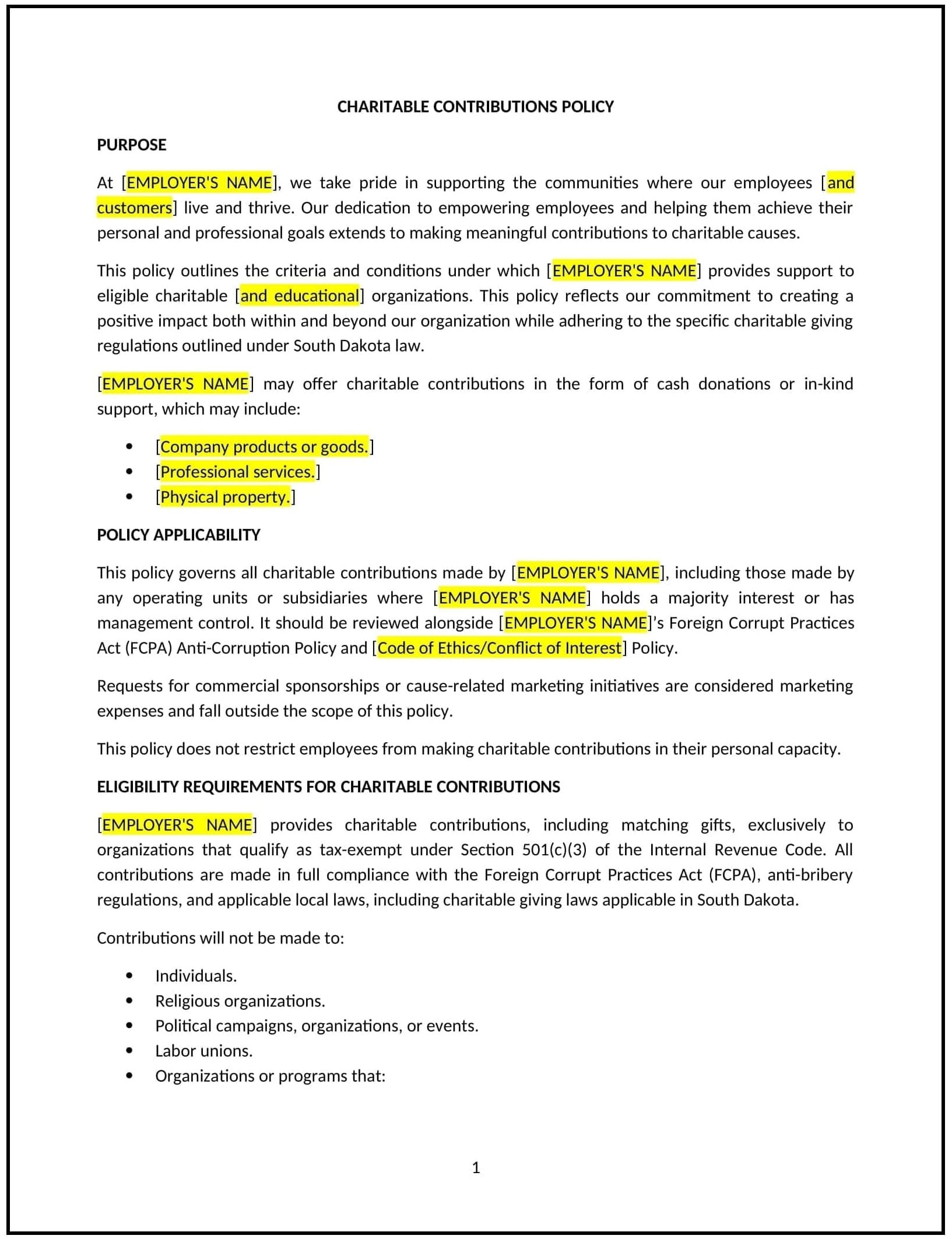Charitable contributions policy (South Dakota): Free template
Got contracts to review? While you're here for policies, let Cobrief make contract review effortless—start your free review now.

Customize this template for free
Charitable contributions policy (South Dakota)
This charitable contributions policy is designed to help South Dakota businesses establish guidelines for donating to charitable organizations. It outlines procedures for selecting charities, approving donations, and tracking contributions.
By adopting this policy, businesses can support community initiatives, enhance their reputation, and align with general best practices for corporate social responsibility.
How to use this charitable contributions policy (South Dakota)
- Define eligibility: Specify which types of charitable organizations are eligible for donations, such as nonprofits or community groups.
- Establish approval process: Provide steps for requesting and approving charitable contributions, including required documentation.
- Set donation limits: Outline the maximum amount of donations allowed per year or per organization.
- Track contributions: Specify how donations will be tracked and reported for transparency.
- Train employees: Educate employees on following the policy and selecting eligible charities.
- Review and update: Assess the policy annually to ensure it aligns with evolving business needs and community priorities.
Benefits of using this charitable contributions policy (South Dakota)
This policy offers several advantages for South Dakota businesses:
- Supports community initiatives: Demonstrates a commitment to giving back to the community.
- Enhances reputation: Positions the business as a socially responsible employer in the community.
- Promotes transparency: Ensures donations are tracked and reported for accountability.
- Builds trust: Shows employees and customers that the business values social responsibility.
- Aligns with best practices: Offers a structured approach to managing charitable contributions.
Tips for using this charitable contributions policy (South Dakota)
- Communicate the policy: Share the policy with employees and include it in the employee handbook.
- Provide training: Educate employees on following the policy and selecting eligible charities.
- Monitor compliance: Regularly review donation requests to ensure adherence to the policy.
- Address issues promptly: Take corrective action if donation requests conflict with the policy.
- Update regularly: Assess the policy annually to ensure it aligns with evolving business needs and community priorities.